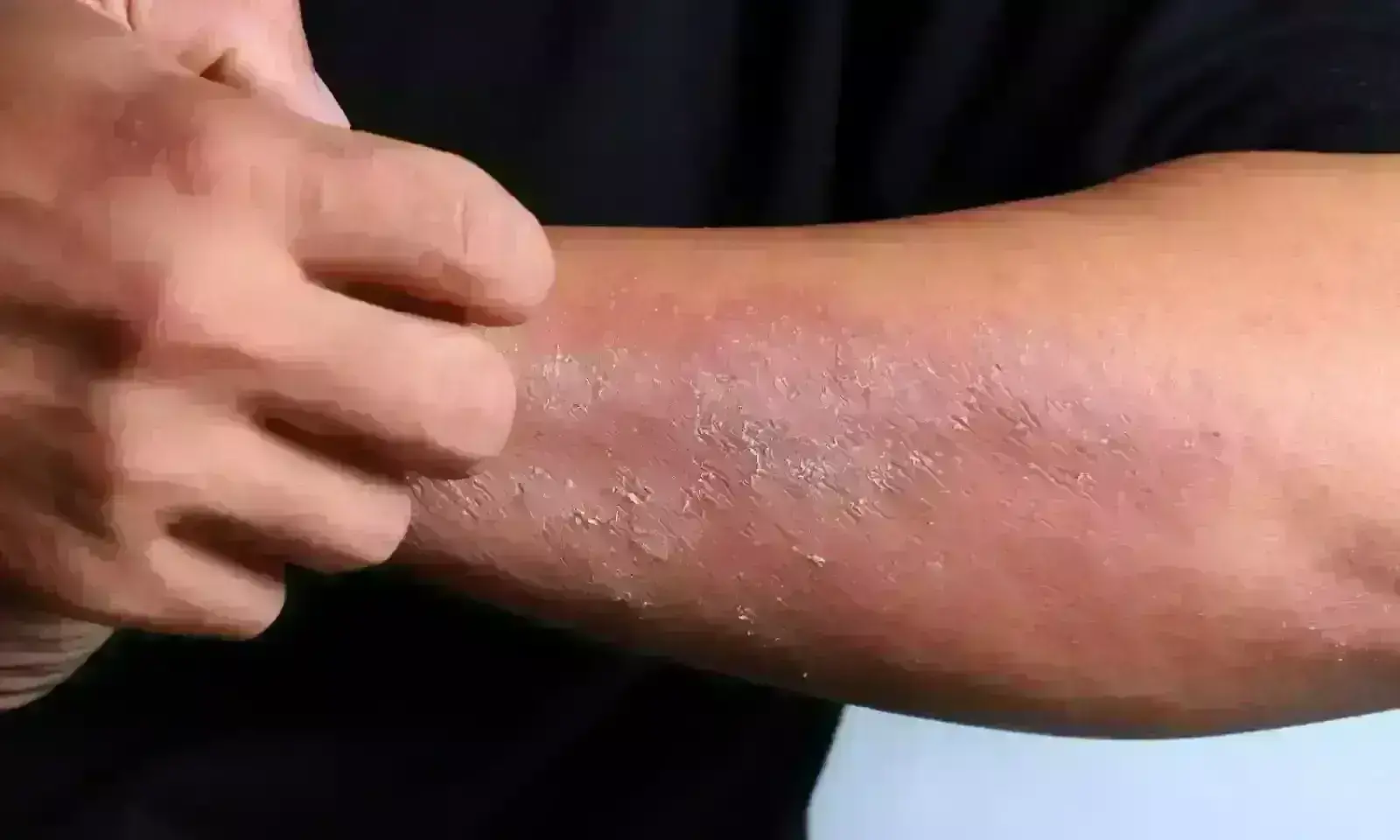- Home
- Medical news & Guidelines
- Anesthesiology
- Cardiology and CTVS
- Critical Care
- Dentistry
- Dermatology
- Diabetes and Endocrinology
- ENT
- Gastroenterology
- Medicine
- Nephrology
- Neurology
- Obstretics-Gynaecology
- Oncology
- Ophthalmology
- Orthopaedics
- Pediatrics-Neonatology
- Psychiatry
- Pulmonology
- Radiology
- Surgery
- Urology
- Laboratory Medicine
- Diet
- Nursing
- Paramedical
- Physiotherapy
- Health news
- Fact Check
- Bone Health Fact Check
- Brain Health Fact Check
- Cancer Related Fact Check
- Child Care Fact Check
- Dental and oral health fact check
- Diabetes and metabolic health fact check
- Diet and Nutrition Fact Check
- Eye and ENT Care Fact Check
- Fitness fact check
- Gut health fact check
- Heart health fact check
- Kidney health fact check
- Medical education fact check
- Men's health fact check
- Respiratory fact check
- Skin and hair care fact check
- Vaccine and Immunization fact check
- Women's health fact check
- AYUSH
- State News
- Andaman and Nicobar Islands
- Andhra Pradesh
- Arunachal Pradesh
- Assam
- Bihar
- Chandigarh
- Chattisgarh
- Dadra and Nagar Haveli
- Daman and Diu
- Delhi
- Goa
- Gujarat
- Haryana
- Himachal Pradesh
- Jammu & Kashmir
- Jharkhand
- Karnataka
- Kerala
- Ladakh
- Lakshadweep
- Madhya Pradesh
- Maharashtra
- Manipur
- Meghalaya
- Mizoram
- Nagaland
- Odisha
- Puducherry
- Punjab
- Rajasthan
- Sikkim
- Tamil Nadu
- Telangana
- Tripura
- Uttar Pradesh
- Uttrakhand
- West Bengal
- Medical Education
- Industry
Antihypertensive drugs like calcium channel blockers and diuretics may increase risk of eczematous dermatitis: JAMA

Researchers have found that antihypertensive drug use is associated with an increased risk of eczematous dermatitis in older adults. This conclusion comes from a longitudinal cohort study conducted using data from primary care practices in the UK, highlighting the need for clinicians to consider medication use when managing eczema in this age group. This study was published in JAMA Dermatology by Ye M. and colleagues.
Rates of physician-diagnosed eczema have been increasing among older adults, but little is known about the underlying mechanisms and optimal treatments for this subgroup. Preliminary data suggested a potential link between antihypertensive medications and eczematous dermatitis, prompting further investigation into this association.
The study analyzed a population-based sample of individuals aged 60 years and older without a prior diagnosis of eczematous dermatitis. Conducted from January 1, 1994, to January 1, 2015, the study utilized data from The Health Improvement Network in the UK. Data analyses were performed from January 6, 2020, to February 6, 2024. The primary exposure was the first prescription of an antihypertensive drug, categorized by drug class.
• The study included 1,561,358 older adults with a mean age of 67 years (SD 9), and 54% were female.
• The overall prevalence of eczematous dermatitis was 6.7% during a median follow-up of 6 years (IQR 3-11). Incidence was higher among those receiving antihypertensive drugs (12 vs. 9 per 1000 person-years).
• Adjusted Cox proportional hazard models indicated a 29% increased hazard rate for eczematous dermatitis among those using any antihypertensive drugs (HR 1.29; 95% CI 1.26-1.31).
•Diuretic drugs showed the largest effect size (HR 1.21; 95% CI 1.19-1.24).
• Calcium channel blockers also had a significant effect (HR 1.16; 95% CI 1.14-1.18).
• Angiotensin-converting enzyme inhibitors had a smaller effect (HR 1.02; 95% CI 1.00-1.04).
• β-blockers showed a similar smaller effect (HR 1.04; 95% CI 1.02-1.06).
The findings indicate a small but significant increased risk of eczematous dermatitis associated with antihypertensive drugs, particularly with diuretics and calcium channel blockers. While the exact mechanisms remain unclear, the data suggest that clinicians should consider these potential side effects when prescribing antihypertensive medications to older adults.
These results could guide clinicians in managing patients who develop eczema later in life. Awareness of the potential link between antihypertensive medications and eczematous dermatitis may prompt more careful selection of antihypertensive therapy, possibly opting for drugs with a lower associated risk when appropriate.
Researchers have found that the use of antihypertensive drugs in older adults is associated with a higher rate of eczematous dermatitis. The effect size varies by drug class, being largest for diuretic drugs and calcium channel blockers. These findings underscore the importance of considering medication history in the management of eczema in older adults.
Reference:
Dr Riya Dave has completed dentistry from Gujarat University in 2022. She is a dentist and accomplished medical and scientific writer known for her commitment to bridging the gap between clinical expertise and accessible healthcare information. She has been actively involved in writing blogs related to health and wellness.
Dr Kamal Kant Kohli-MBBS, DTCD- a chest specialist with more than 30 years of practice and a flair for writing clinical articles, Dr Kamal Kant Kohli joined Medical Dialogues as a Chief Editor of Medical News. Besides writing articles, as an editor, he proofreads and verifies all the medical content published on Medical Dialogues including those coming from journals, studies,medical conferences,guidelines etc. Email: drkohli@medicaldialogues.in. Contact no. 011-43720751


